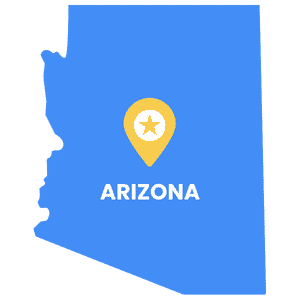North Carolina State Information Page
Current Legality State – North Carolina
Medical
- Medical Cannabis Program only
- Decriminalized for small possession
- low-THC medical CBD program for limited conditions
- Possession is not allowed recreationally; possession of a 30 day supply of low-THC CBD and hemp is legal for medical patients
- Cultivation of marijuana plants is illegal

Current Legality State
Medical

- Medical Cannabis Program only
- Decriminalized for small possession
- low-THC medical CBD program for limited conditions
- Possession is not allowed recreationally; possession of a 30 day supply of low-THC CBD and hemp is legal for medical patients
- Cultivation of marijuana plants is illegal
Your cannabis AI assistant
Tailored recommendations for your favorite
Sign up below for early access
*By signing up, you agree to the Terms and Conditions and Privacy Policy.
California residents, see our CA Privacy Notice.
Is Cannabis Legal In North Carolina ?
While cannabis has been decriminalized since the late 1970s in the state of North Carolina, medical and recreational use is just now coming into play for lawmakers.
As of 2022, there are three cannabis bills (Senate Bill 646, House Bill 617, House Bill 576) that many lawmakers and citizens are hoping to get passed this year in regards to the expansion of the medical program, as well as recreational use and small-batch cultivation legalization.
It appears that 2022 may be a big year for marijuana laws in North Carolina.
State Laws and Offenses
Here’s a list of penalties for possession, sale, and distribution of marijuana, concentrate, or paraphernalia in North Carolina:
- Marijuana is a Schedule IV drug according to state law in North Carolina.
- Federally, cannabis is still considered a Schedule I Controlled Substance
- Adults possessing half ounces or less of cannabis are punishable by a maximum fine of 200 USD
- Sales of any kind is a Class E Felony; penalties range from 4 months to 7 years and 200 USD to 200,000 USD depending on the pounds
- Cultivation of any kind is a Class E Felony; penalties range from 4 months to 7 years and 200 USD to 200,000 USD depending on the pounds
- An adult possessing drug paraphernalia is a Class A Misdemeanor
- Sales of cannabis or paraphernalia involving a minor is a Class E Felony
North Carolina Qualifying Conditions For Medical Marijuana
North Carolina lists the following medical conditions as qualifiers for a medical card:
- AIDS/HIV
- Lou Gehrig’s Disease
- Cachexia or wasting syndrome
- Cancer
- Crohn’s disease
- Epilepsy
- Multiple sclerosis
- Parkinson’s disease
- Post-Traumatic Stress Disorder
- Sickle cell diseases
- Severe or persistent nausea, not pregnancy-related
Does North Carolina accept out-of-state medical cards?
The state of North Carolina does not accept out-of-state medical marijuana cards from patients.
How to get a medical marijuana card in North Carolina
These are the steps to getting a medical marijuana card with the help of Leafy DOC
-
Book An Appointment
- You will schedule an appointment to see a medical marijuana doctor in North Carolina at a time that is most convenient for you.
- Provide basic medical history and book your appointment with a licensed medical marijuana doctor. You will need medical records and the doctor can approve any qualifying condition(s).
-
Evaluation
- Consult with a doctor for a quick evaluation of your ailments, and ask any questions you may have about medical marijuana treatment.
-
Approval
- Within 24 hours after the evaluation, the doctor will send your certificate via email for your recommendation for medical marijuana.
- After receiving that recommendation, you can then apply with the state of North Carolina to complete the registration process.

Book your appointment
- Easily make appointment online
- Skip unnecessary doctor office visits
- Provide basic medical history

Match with a Doctor
- Connect w/ the right doctor for you.
- Thorough evaluation via phone or video call.
- Provider will answer any questions.

Get your Medical Card
- Upon Approval you’ll receive confirmation email
- Receive a temporary card or card in the mail
- Enjoy the benefits of being a medical card holder!
It’s also possible to become certified online for medical cannabis in NC. You’ll have to book an appointment for an evaluation, attend your consultation, and get approved.
Then, you’ll need copies of valid ID and proof of address to send in with your certification with an application form to get an NC medical marijuana card through the Department of Health and Human Services.
Cannabis Policy Reform Timeline
1977: Cannabis was decriminalized, and the penalty for possession of small amounts (half an ounce or less) was lowered to a maximum fine of 200 USD.
2014: A medical legalization bill was attempted in May 2014 and killed by the House committee in early 2015. Consideration of a statewide medical program was also blocked by legislation for two years.
2015: Governor Pat McCrory signed HB 766 into law. It legalized the use of CBD oil for patients with epilepsy.
2017: Hemp was legalized. Industrial hemp and CBD seeds with low amounts of THC can now be purchased from the state with the proper license.
2021: In August 2021, revisions for the state’s limited medical program were approved by legislation. Senate Bill 711 will enact the North Carolina Compassionate Care Act that allows individuals with qualifying medical conditions to register to use and safely access medical cannabis through a regulated medical cannabis supply system.
This and several other bills are expected to be finalized in 2022.








